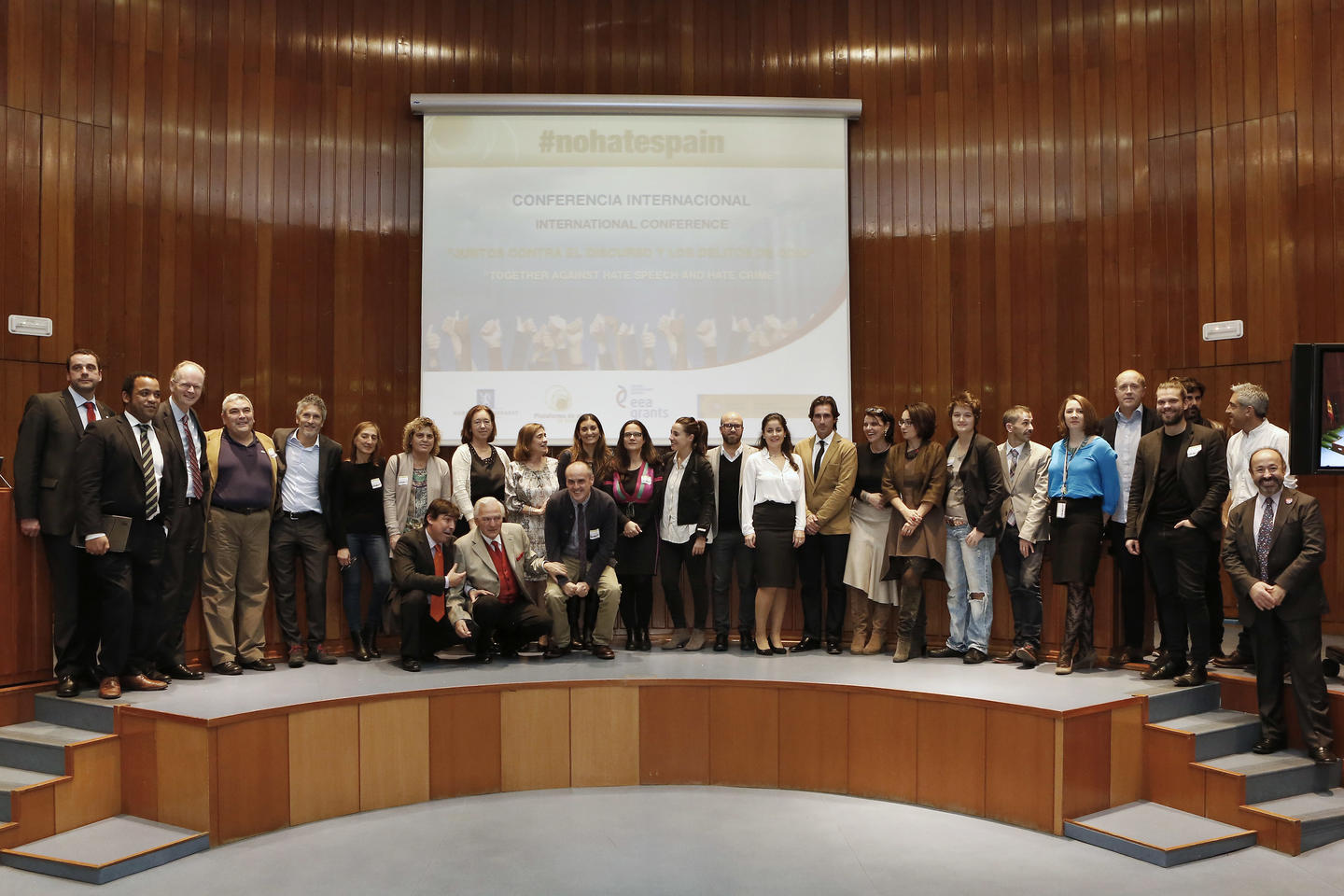This was the message from the EEA and Norway Grants Ambassador Ingrid Schulerud during the opening of the conference ‘Together against Hate Speech and Hate Crime’ held in Madrid on 27 November. Ambassador Schulerud underlined the importance of joint action for combating hate speech - a growing threat not only to individuals and different groups in Europe, but also one which undermines democracy.
Organised by the NGO Platform for Social Action in cooperation with the Royal Norwegian Embassy to Spain and the Spanish Ministry of Health, Social Services and Equality, and funded by the EEA Grants, the conference brought together around 200 representatives from governments, civil society and international organisations including the Council of Europe and the EU Agency for Fundamental Rights.
The conference served as a forum for sharing ideas and experience and for discussing practical initiatives to help prevent, raise awareness and take action on this issue.
All European countries are committed to countering discrimination, including hate speech and hate crime. Yet all too many tragic attacks in recent years highlight growing intolerance against minorities. Surveys and reports from international bodies like the Council of Europe and the EU reveal rising xenophobia and discrimination based on religious beliefs, ethnicity, sexual orientation or gender.
The event was moderated by renowned Basque journalist Jon Sistiaga who has extensive experience of reporting on hate crimes and conflicts around the world. A short documentary film financed by the EEA Grants made by Sistiaga with journalist Hernán Zin was aired for the first time during the conference. The film powerfully illustrates the rising threat of hate speech in Europe – which in turn can trigger an increase in discrimination, polarisation of communities and violence motivated by prejudice.
Marisa Gomez, Director of the NGO Platform for Social Action, underlined the commitment of Spanish civil society to tackling extremism:
"Given a context where extremism and hate crimes are almost daily news, we are committed to working effectively with government and other European NGOs to protect the values of European integration, where tolerance should be a priority,” said Ms Gomez.
Strong stance
Iceland, Liechtenstein and Norway are taking a strong stance against hate speech and using the EEA and Norway Grants as a tool both to raise awareness of the issue and its risks for democracy. Challenging intolerance and promoting democracy, fundamental rights and equality are values that sit squarely at the heart of the Grants. NGO programmes in all beneficiary countries actively address hate speech as well as tackle extremism, racism and xenophobia, homophobia and anti-Semitism. Over 300 projects related to hate speech have received funding.
The EEA and Norway Grants are also a strategic partner to the Council of Europe’s ‘No Hate Speech’ campaign. Launched in 2013 and running until spring 2015, the campaign is based on human rights education, youth participation and media literacy. The NGO programmes are making a strong contribution to the campaign, organising workshops for youth bloggers, compiling good practice databases and sharing campaign toolkits for schools.
One of the main discussion points at the conference was how government, civil society, international organisations and technology companies can better work together to combat hate speech and hate crime. Increasingly sophisticated communication technologies and social media have made it easier than ever before to spread extremist ideas and hate speech. At the same time, social media can also be a force for good and used to combat intolerance. Striking the right balance is critical. Carmen Plaza, Director of the Women’s Institute at the Spanish Ministry of Health, Social Services and equality had this message for the audience:
“We have to use speech - it is our best weapon against hate speech.”
Read more
#nohatespain
